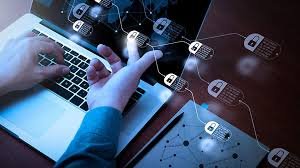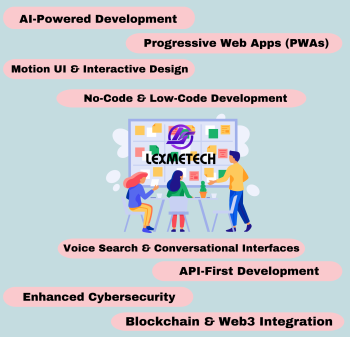Introduction to Blockchain Technology
Blockchain is a decentralized digital ledger that records transactions across multiple computers. This technology ensures that the recorded transactions cannot be altered retroactively, enhancing transparency and security.
Supply Chain Management
Transparency and Traceability: Blockchain enables real-time tracking of products from origin to consumer. Companies like Walmart use blockchain to trace food products, ensuring safety and authenticity. Smart Contracts: Automated contracts executed when conditions are met streamline processes, reducing delays and errors. Blockchain can securely store and share patient records, ensuring privacy and interoperability between healthcare providers. Drug Helps combat counterfeit drugs by tracking pharmaceuticals through the supply chain. Blockchain facilitates quicker and cheaper international transactions by eliminating in term diaries lending processes and insurance claims reduces administrative costs and enhances efficiency. Blockchain can simplify the buying and selling process by providing a transparent ledger of ownership and reducing the need for intermediaries. Real estate can be tokenized, allowing fractional ownership and broader investment opportunities. Individuals can control their digital identities, reducing identity theft risks and streamlining verification processes in banking and travel Compliance Simplifies Know Your Customer processes for businesses, enhancing security while improving user experience. Blockchain enables peer-to-peer energy trading, allowing users to buy and sell excess energy directly. Provides a transparent system for tracking and trading renewable energy credits. Blockchain can enhance the integrity of voting by providing a tamper-proof record of votes, reducing fraud and increasing voter confidence.
Digital Rights Management
Artists can retain control over their work, ensuring fair compensation through direct sales and transparent royalty tracking. Blockchain facility decedent realized funding models for creative projects, allowing artists to connect directly with their audience. Blockchain Blockchain can securely record property titles, reducing disputes and enhancing transparency. Governments can create secure digital identities for citizens, streamlining access to services. Conclusion Blockchain technology holds the potential to transform various industries by enhancing transparency, security, and efficiency. to be addressed to fully realize blockchain’s benefits in various industries. Collaboration among stakeholders will be crucial for successful implementation and adoption. This overview provides a comprehensive look at the multifaceted applications of blockchain beyond cryptocurrency, showcasing its transformative potential across different reduces fraud and accelerates settlements. Blockchain can help insurers better assess risk by providing access to comprehensive and immutable data about insured assets and previous claims Blockchain can trace the journey of food products from farm to table, providing consumers with transparency about sourcing and handling practices. Farmers can use blockchain to manage supply chains more effectively, ensuring that they receive fair prices and timely payments.
Telecommunications
Blockchain can help reduce fraudulent activities, such as SIM card cloning and account takeovers, by providing secure and immutable records of automating roaming agreements through smart contracts can streamline processes between telecom providers, enhancing service efficiency. Blockchain Blockchain can track donations in real time, ensuring that funds are used as intended, thus enhancing trust between donors and organizations. Tokenization allows for small-scale donations to be made easily, encouraging more people to contribute. Creators can register their work on a blockchain, providing a clear record of ownership and helping to combat piracy Smart contracts can automate licensing agreements, ensuring that creators receive payment whenever their work is used Blockchain can provide a transparent and tamper-proof record of a vehicle’s history, including ownership, maintenance, and accidents, enhancing resale value and consumer confidence. Blockchain can facilitate communication and transactions between vehicles and infrastructure, supporting the development of smart cities. Educational institutions can use blockchain to issue and verify diplomas and certificates, simplifying the verification process for employers. Individuals can maintain a secure record of their educational achievements and skills, supporting ongoing career development. Block chai can streamline loyalty programs, enabling users to earn and redeem points across different platforms without friction. Smart contracts can enhance the booking process, ensuring that terms are met before payments are released, which can reduce disputes. Blockchain. Blockchain can track and trade carbon credits, providing a transparent marketplace for companies aiming to offset their carbon footprint. Enhance tracking of resource usage (like water or energy) can promote sustainable practices and efficient consumption.
Final Thoughts
While challenges remain, the future of blockchain appears bright. As it matures, we are likely to see more applications that not only transform existing industries but also create entirely new business models. Continuous collaboration between technologists, regulators, and industry stakeholders will be crucial for realizing blockchain's full potential. This comprehensive exploration provides insights into even more use cases, emerging trends, and case studies that showcase the transformative power of blockchain technology. If you’d like to dive deeper into any specific area or explore other topics, let me know!








